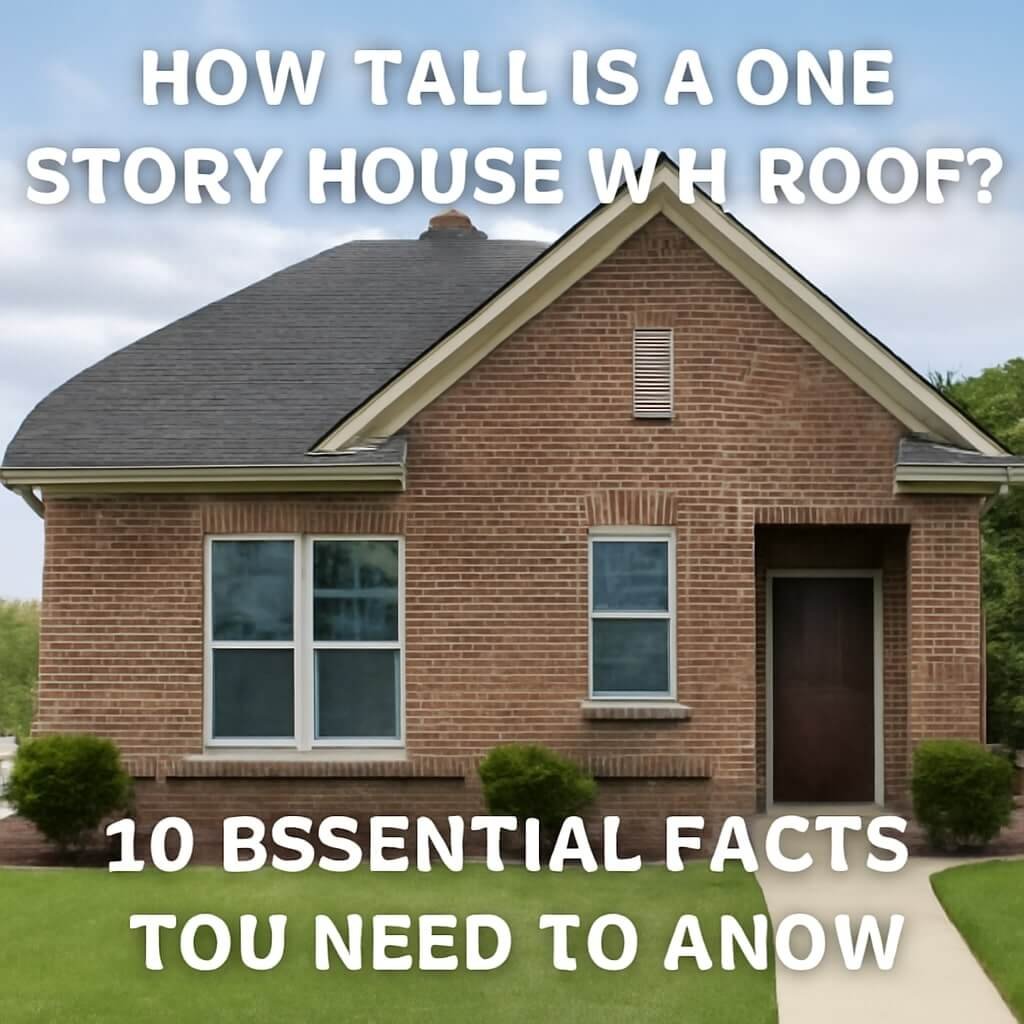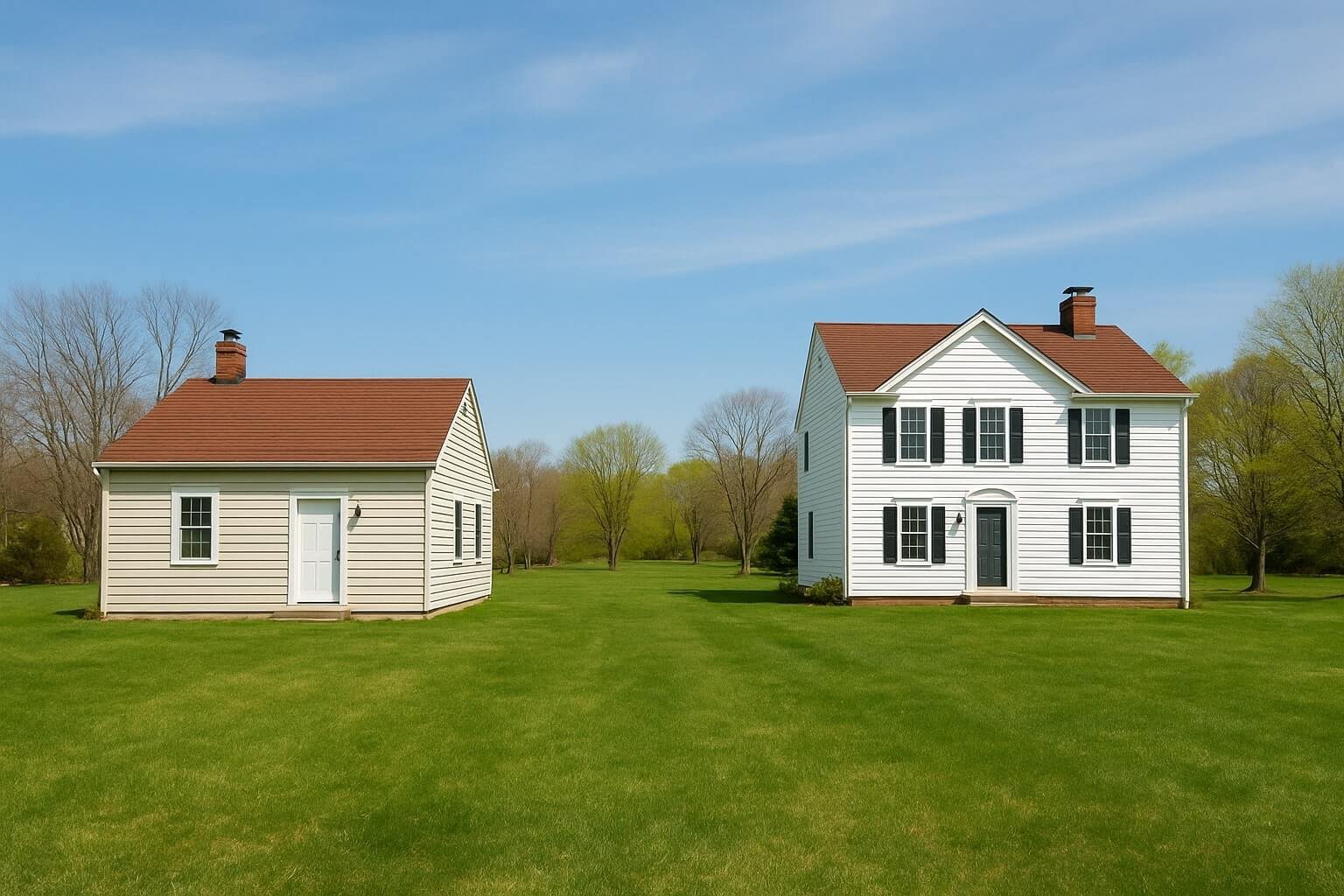A one-story house is typically defined as a single-level dwelling without additional floors stacked vertically. These homes offer simplicity in design and accessibility, making them popular among many homeowners. While the floor plan remains on one level, the overall height varies significantly based on the wall height and the type of roof installed.
Standard Wall Height in One-Story Homes
Generally, the interior wall height of a one-story home ranges between 8 and 10 feet. This standard height balances comfort, construction costs, and energy efficiency. The 8-foot ceiling is traditional, but many modern homes are now built with 9 or 10-foot ceilings to create a sense of openness.
Common Roof Types on One-Story Houses
The roof plays a critical role in the overall height of a house. Popular roof types for one-story homes include:
- Gable Roof: Characterized by two sloping sides that meet at a ridge.
- Hip Roof: All sides slope downwards toward the walls.
- Flat Roof: Minimal slope, common in modern designs.
- Shed Roof: Single sloping plane.
Each style adds different height profiles. For example, a steep gable roof can add significant height compared to a flat roof.
Measuring the Total Height of a One-Story House
When measuring the height of a one-story house with a roof, it is essential to include:
- Wall Height: From ground level to the top of the exterior walls.
- Roof Height: From the top of the walls to the roof’s peak or highest point.
Most measurements start from the ground level to the roof ridge (for pitched roofs).
Wall Height vs. Roof Height: What’s Included?
The total height is a combination of:
- Foundation height (if raised)
- Exterior wall height
- Roof height, including any attic or crawl space area beneath it
This distinction is important because many homebuyers and builders confuse wall height with total house height.
Typical Height Ranges for One-Story Houses with Roof
| Component | Typical Range (feet) | Notes |
|---|---|---|
| Wall Height | 8 – 10 | Standard ceiling heights |
| Roof Height | 4 – 10 | Varies with roof style & pitch |
| Total Height | 12 – 20 | Average total height |
In most residential construction, a one-story house with a roof will be between 12 and 20 feet tall from ground to roof peak.
Minimum Height Requirements for Building Codes
Building codes often set minimum heights for safety and ventilation. For example, many regions require a minimum ceiling height of 7 feet for habitable spaces. Roof heights may also be regulated to avoid obstructing views or maintaining neighborhood aesthetics.
Variations by Region and Climate
In colder climates, roofs tend to be steeper to prevent snow buildup, increasing overall height. Conversely, in warmer climates, flat or low-pitch roofs are common, reducing height.
Why Height Matters: Benefits of Proper One-Story House Height
- Comfort: Higher ceilings provide better air circulation.
- Safety: Proper height ensures compliance with codes.
- Aesthetics: Adds to curb appeal.
- Energy Efficiency: Affects heating and cooling dynamics.
Energy Efficiency and Ventilation
Higher roofs may help in better ventilation and reduce heat build-up, but too high ceilings can increase heating costs. Proper balance is key.
How to Calculate Your One-Story House Height
Calculate by adding the wall height + the roof height (from the top of the wall to the peak). Use architectural plans or measure manually with a tape or laser measure.
Tools and Tips for Accurate Measurement
- Laser distance meters for accuracy
- Measuring from level ground for consistency
- Use a ladder or drone for roof height measurement
Frequently Asked Questions (FAQs)
1. How does roof style impact house height?
2. What is the average wall height in a one-story house?
3. Are there building codes for one-story house heights?
4. How tall is a one-story house without a roof?
5. Can the roof height be customized?
6. What are the tallest one-story house designs?
Conclusion: Key Takeaways on One-Story House Heights
Understanding the height of a one-story house with a roof involves knowing the standard wall heights and roof types. Typically, such homes range from 12 to 20 feet tall, depending on design choices and local codes. The height impacts everything from aesthetics to energy efficiency and comfort. When planning or buying, knowing these measurements helps ensure your home meets needs and regulations.




